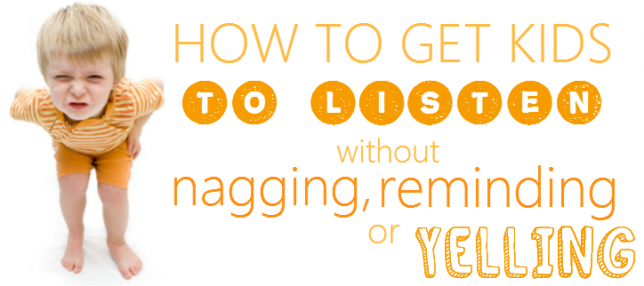In recent years, the benefits of meditation for people of all ages have become increasingly apparent. I’m always looking at ways to help my own kids, so I thought it would be good to see how mindfulness meditation for children can benefit them.
Let’s take a look at what “mindfulness meditation” means and how our kids can benefit from it. All from a dad’s “well-grounded” perspective 🙂 After all, it has to be fun, right!?
What is Mindfulness Meditation?
If meditation is new to you, you may well be asking what is mindfulness meditation anyway? Well, mindfulness is simply where you focus your attention on how you’re feeling right now, at the moment. It’s a matter of thinking freely and without judgment.
There are several different types of mindfulness involving various practices that help relax both mind and body. These include breathing techniques, or guided imagery, which uses images and words to move attention away from negative thoughts and feelings, stress, worry, or pain.

Through guided imagery, your child learns to use their imagination to create positive feelings, which help them change and control their emotional state. Even very young children can do this once they know how to link images they see in their minds to their experiences and feelings.
One of the coolest things about meditation is that you don’t need to be rigid with children (or yourself) you can go with the flow, make the area comfy with their favorite plushies and pillows, and they can even have their favorite toys or PPG Funko toys join them! Personalize the experience to make it more fun.
Benefits of Mindfulness Meditation
Increasing amounts of scientific studies have been conducted to discover the benefits of meditation practices. Those carried out on young people have shown improvements in both mental and physical health, but also social and emotional well-being.
Daily meditating promotes relaxation, better sleep, good behavior, higher self-esteem, calmness, and an ability to better manage self-awareness and emotions. It also helps develop greater empathy and compassion for others.
Emotional Stability

As a child grows into adolescents, their emotional state can become a rollercoaster ride fluctuating hormone levels. Meditation helps maintain a better balance and promotes a more positive outlook with fewer negative emotions and less anxiety. It can even lead to a greater number of friends and increased popularity in school.
Mindfulness meditation has been seen to positively impact:
- Stress
- Anxiety
- Depression
- Social ability
- Self-esteem
Cognitive Enhancement
Enhanced cognitive skills and executive function, which are a person’s ability to pay attention, remember details, organize information, switch focus, and engage in planning, are all improved with mindfulness meditation. Children become focused, think innovatively, use existing knowledge to greater effect, demonstrate a broader memory, and have enhanced problem solving, planning, and reasoning skills.
In a study of third-grade students lasting eight weeks, mindfulness was practiced daily. Over the eight week duration, they showed an ability to focus better on tasks, and their behavior improved compared to students who did not participate.
Another study where children followed a 24-week program of mindfulness, showed an ability to maintain attention on activities both in elementary students and preschoolers. Children also had better scores on academic tests.
Mindfulness meditation has been seen to positively impact:
- Memory
- Attention
- Organization
- Focus
- Planning
- Innovation
- Problem-solving
- Reasoning
- Test scores
Social Benefits
Many children and adolescents find some aspect of interacting with others and communicating well challenging. This can result in feelings of resentment, isolation, loneliness, and a belief that no one understands them. Mindfulness can be used to alleviate these problems and improve communication skills.

This has been seen with an elementary school that ran a mindfulness program for five weeks. At that time, it was noted the children were participating more enthusiastically in class activities. In a high school program, results showed students showing more respect and helpfulness towards each other, and the overall climate in the school was improved.
Additional Benefits
Some studies have focused on using mindfulness to help people of all ages with various mental health problems, including anxiety and depression. Aggression and ADHD also show improvement when meditation is practiced regularly. Children who have suffered bullying can also find the painful effects are alleviated.
Some of the benefits noted by schools who use mindfulness meditation with their students reported that it:
- Controls undesirable impulses
- Enhances self-worth
- Improves overall learning
- Decreases instances of bullying
- Improves attendance
How to Practice Mindfulness Meditation
To work to its fullest potential, mindfulness should be practiced daily. The best ways of achieving this are through establishing a routine and setting aside a short window of time each day when full focus can be given to learning how to be mindful.
With mindfulness, it should be made clear that even when you’re not meditating, you should still live in the moment. It’s essential to try and stay away from thoughts about the past or the future. Instead, concentrate only on the now.
Although there are no set rules specifying how much meditation your child should do each day, there are some guidelines suggested by pediatricians:
- Preschoolers – 2 to 3 minutes a day
- Grade schoolers – 3 to 10 minutes twice a day
- Teenagers and adults – 5 to 45 minutes a day as preferred. This can be done in one sitting or over several during the day

To meditate effectively, your child should find a quiet, comfortable space and sit in a relaxed but alert position with their feet on the ground. This can be achieved sitting on the floor with their back against a wall and knees bent or sitting upright in a chair. As they get older, they can choose to take up the classic crossed legged position, sitting on a supportive cushion with their hands held in their lap or resting palm upon their thighs. Laying down to meditate is not recommended as it is too easy to fall asleep.
To begin with, try short guided meditations. Guided meditation is where you follow along with a leader or teacher doing as they tell you. This can also be called guided imagery or visualization. There are plenty to choose from on YouTube that are purpose-made for children. It’s best to look at them yourself first to ensure they are well done and appropriate for your child’s age. Guided meditation helps children to focus more easily and stay in the present.
It doesn’t take long for kids to learn how to be mindful. The key is to keep their attention on what’s right in front of them at all times. Avoid letting them dwell on the past or worry about the future. If this is done over a prolonged period, then soon, they’ll be less stressed and happier.
Resources
 There are lots of resources available to help you with this, including websites, books, activities, CDs, DVDs, and YouTube videos.
There are lots of resources available to help you with this, including websites, books, activities, CDs, DVDs, and YouTube videos.
I recommend this website and these three books (also available in other formats) to help you get started:
Mindful.org: Mindfulness practices for families and Kids (https://www.mindful.org/mindfulness-for-kids/)
Breathe Like a Bear: 30 Mindful Moments for Kids to Feel Calm and Focused Anytime, Anywhere. Written by Kira Willey. For 4- to 8-year-olds. Available here on Amazon.
Ultimate Mindfulness Activity Book: 150 Playful Mindfulness Activities for Kids and Teens (and Grown-Ups too!). Written by Christian Bergstrom. For ages 4 and up. Available here on Amazon.
I Can Do Hard Things: Mindful Affirmations for Kids. Written by Gabi Garcia. For children 6 years and up. Available here on Amazon.
Conclusion
As children of all ages learn how to use mindfulness and control how they think and feel, they’ll soon be more positive in their outlook and making better choices. For this to work most effectively, mindfulness should be practiced daily. That way, it becomes habitual and part of the everyday routine.
Giving mindfulness meditation a try, not only for your kids but for the entire family, can only be a positive thing. So why not give it a go? Once you’ve learned how to practice mindfulness, it can be done anywhere, at any time. This is especially useful to help kids stay in control of their thoughts, feelings, and emotions.
I hope you’ve enjoyed learning a little bit about how mindfulness meditation can benefit children and hope you’ll visit ‘That Toy Dad’ again soon.
If you have anything to add to this story or would like to share your own experience with mindfulness and mediation, especially with your kids, then please reach out in the comments and let me know. I’m looking forward to reading from you!
All the best,
chris
P.S.: Did you EVER happen to yell at your child or call a timeout? Did you regret it afterwards? I certainly have, and I never felt good about it! If you want to learn how to put an end to this behavior, decode your kids and understand them so much better and become a calm parent, then make sure to read my FULL REVIEW of “Positive Parenting Solutions” HERE. This program changed our family’s life and we saw first results within just 3(!) days. And it will certainly work for you as well!





I have never really known what mindful meditation was until today, I definitely see how it can be very beneficial for lots of reasons. I definitely learned something new today that I think I could possibly try in my life and get some benefit from. Thank you for sharing this information keep up the good work.
Jonathon
Hi Jonathan.
I’m happy to read that my article provided a “takeaway” for you. Thanks for sharing your thoughts.
I hope you manage to implement meditation into your own life, and possibly even share it with your kids and family. It’s pretty likely that you won’t feel the benefits of mediation right there on day one of your journey.
Because that’s what it is: A journey. You may start out and be like “Hm, that was interesting, but I don’t feel that relaxed!” on day one. Maybe you feel like you didn’t do it right… That’s okay. As with any other skill, it takes time and practice to develop. Go for it 🙂
Cheers,
chris
Thank you for shining a light on the importance of meditation for children. It’s the first time I’ve heard of this but it makes sense to teach children to look inward to discover how they’re truly feeling and why. Starting with a simple 2-minute meditation for my 4-year-old granddaughter seems totally doable so I’m going to give it a try. I’m going to get the Breathe Like A Bear book for her as well!
Hi Cynthia.
Thanks for stopping by and sharing your thoughts. I bet many people feel like you: Even if they have discovered meditation for themselves, many will feel that it is too advanced for their kids. In fact, meditation becomes quite simple once you manage to turn it into a daily habit and you feel how it improves your overall well-being, right?
Meditation, for many adults, is just something that they feel doesn’t suit their lifestyle or sounds somewhat too “esoteric” for them. Why not give our kids a head start and spare them the opportunity of missing out on such an important skill and habit.
I love that you want to give it a shot and try it with your granddaughter. If you happen to stop by again and read this, please let us know how it went.
All the best to you and your family,
chris
Well, even though we don’t have kids here in our home, this list is really helpful though. You see, it is not just the adults who are experiencing stress in life, even kids do too! And I think it is important to teach mindfulness meditation to them as well. This way, you can teach them to formulate positive thoughts and convert them into positive actions. In the long run, you might be surprise how well established your child is emotionally and physically. So start now!
Hi Nico! Thanks for stopping by and sharing your thoughts on the topic. Mindfulness meditation indeed is a very valuable skill. It can be somewhat hard to get into the habit of meditating as an adult, so it’s certainly a valuable skill to learn as kid while growing up. I think it’s important, though, that moms and dads who want to teach it to their kids know it themselves, as least a bit, so that they know what they are talking about 🙂 Wish you all the best, chris